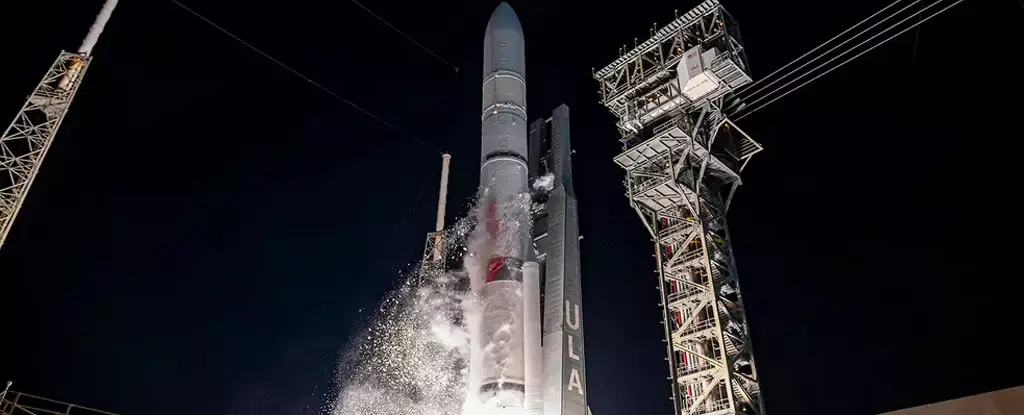In a major blow to America’s lunar ambitions, a highly anticipated commercial mission to the Moon is set to end in failure due to a critical loss of fuel. The organizers of the mission made the distressing announcement on Tuesday, dashing hopes of placing the first American spacecraft on the lunar surface since the Apollo era. The ill-fated Astrobotic’s Peregrine Lunar Lander, affixed to the top of United Launch Alliance’s new Vulcan rocket, took off successfully from Florida’s Cape Canaveral Space Force Station on Monday, steadily making its way towards its lunar destination. However, a series of malfunctions soon plagued the spacecraft, rendering it incapable of achieving a soft landing on the Moon.
Shortly after separating from its launch vehicle, Peregrine encountered its first setback. The solar panel on the spacecraft was unable to orient itself towards the Sun, leading to an inability to recharge the battery. This crucial propulsion glitch not only hindered the craft’s ability to gather solar power but also caused damage to its exterior. Astrobotic, the company behind the mission, confirmed that its prized lander had “no chance of soft landing” on the Moon, leaving the fate of the mission hanging in the balance. With approximately 40 hours of fuel remaining, the company declared its intention to maximize the spacecraft’s operations until it ran out of propellant.
NASA had invested over $100 million in Astrobotic’s mission, leveraging the company’s expertise to transport scientific hardware to a mid-latitude region on the Moon. The primary objective was to gain valuable insights into the lunar surface composition and radiation levels, critical information for NASA as it prepares to send astronauts back to Earth’s closest cosmic neighbor later this decade. With this failure, questions regarding the viability of relying on the commercial sector to reduce costs and stimulate a burgeoning lunar economy come to the fore. Astrobotic, however, emphasized that it was capturing valuable data to inform its future endeavors. The company is already gearing up for its next mission, scheduled for later this year, which involves the Griffin lander transporting a NASA rover to the lunar south pole.
During the past decade, several private companies have attempted to achieve the challenging feat of a soft lunar landing, only to face disappointment. Israel’s Beresheet lander, the first non-governmental entity to make such an attempt, met its demise upon impact with the Moon in April 2019. Similarly, Japan’s private Hakuto mission, operated by iSpace, crashed in April 2023. While national space agencies have achieved successful lunar landings, including the Soviet Union, the United States, China, and India, the private sector has struggled to replicate this feat.
As America licks its wounds from this failed mission, all eyes turn to Houston-based Intuitive Machines, the next company poised to make a commercial attempt at a lunar landing. Scheduled for launch in February, their mission is destined for the Moon’s south pole. Alongside scientific instruments, Astrobotic’s Peregrine is carrying an assortment of unique cargo on behalf of private clients. These unusual items include a physical Bitcoin, cremated remains, as well as DNA samples from the likes of Star Trek creator Gene Roddenberry and renowned sci-fi author and scientist Arthur C. Clarke. However, the inclusion of human remains stirred controversy, with objections raised by the Navajo Nation, America’s largest Indigenous tribe, on grounds of desecrating a sacred space. Despite their misgivings, their concerns failed to alter the mission’s trajectory.
The failed Astrobotic lunar mission represents a significant setback for America’s aspirations of returning to the Moon. The critical loss of fuel and subsequent malfunctions have dashed hopes of achieving a soft landing, placing the spacecraft’s scientific objectives in jeopardy. With the emergence of numerous commercial lunar missions, this failure poses questions about the viability and effectiveness of relying on the private sector for future space exploration endeavors. As the world eagerly awaits Intuitive Machines’ upcoming lunar mission, America grapples with disappointment while striving to navigate the treacherous path towards conquering new cosmic frontiers.


Leave a Reply